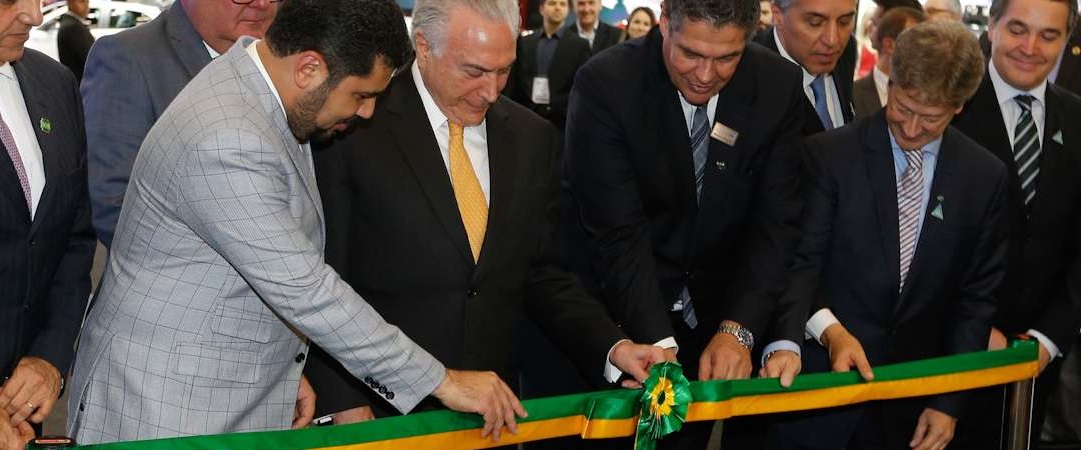
Temer aprova programa de incentivos Rota 2030
nov, 22, 2018 Postado pordatamarnewsSemana201846
Na última quinta-feira, o presidente Michel Temer aprovou um novo programa automotivo do governo federal conhecido como Rota 2030. Ele ficará em vigor pelos próximos 15 anos e foi projetado para estimular a indústria automobilística nacional, fornecendo créditos fiscais de cerca de R$2,1 bilhões em 2019 e R$1,5 bilhões em 2020. O programa substituiu o programa Inovar-Auto, condenado pela OMC, que foi encerrado no ano passado. O programa Rota 2030 visa estabelecer uma estrutura para a produção e comercialização de veículos, bem como melhorar o gerenciamento da cadeia de suprimentos, aumentar a eficiência energética e utilizar novas tecnologias para atender aos padrões internacionais.
_____________________________________________________________________________________
Fontes usadas
URL: https://uk.reuters.com/article/uk-brazil-autos-idUKKCN1ND32L
Brazil approves tax breaks for Ford, Fiat, other automakers
Date: 08/11/2018
BRASILIA (Reuters) – Brazil’s President Michel Temer on Thursday signed into law hundreds of millions of dollars in incentives for automakers such as General Motors Co (GM.N) and Volkswagen (VOWG.DE) to produce locally and continue developing engines that run on both gasoline and ethanol.
The plan, known as Rota 2030, replaces a previous package of tax exemptions known as Innova Auto that had expired at the end of 2017. It will also provide incentives to improve the fuel efficiency and safety of vehicles, as well as for investment in research and development.
Brazil, once one of the world’s top five auto producers, is recovering from a two-year recession which saw car sales plummet. Most global automakers have plants in the country, benefiting from tariffs that keep out imports, which they say help offset the country’s high labour costs and often rickety infrastructure.
As signed into law, Rota 2030 will run for 15 years and provide tax credits over the next five years estimated to total 2.1 billion reais ($560 million) in 2019 and 1.5 billion reais in 2020.
The vast majority of Brazil’s cars have so-called “flex” engines which run on both gas and ethanol, produced from local sugar. Rota 2030 lowers by at least 3 percentage points the tax on industrial products applied to “flex” motors.
Brazil’s sugar lobby said in a press release “that the amendment had been developed and suggested by the ethanol industry in line with the demands of the auto industry.”
The bill also renews incentives for the car industry to have assembly plants in the poorer Northeast region of Brazil, where Ford Motor Co (F.N) and Fiat (FCHA.MI) have factories.
Rota 2030 was voted on by Brazil’s lower chamber on Wednesday, by the Senate on Thursday and then signed by Temer, who also attended the inauguration of the Sao Paulo International Motor Show.
-
nov, 21, 2018
0
Adecoagro investe R$ 21,2m em usinas Brasileiras
-
Carnes
out, 05, 2020
0
Ministério da Agricultura confirma ocorrência de foco de peste suína clássica no Piauí
-
Carnes
jul, 26, 2024
0
Brasil comunica fim do foco de doença de Newcastle a órgão internacional de saúde animal
-
Portos e Terminais
ago, 25, 2023
0
ANTAQ aprova processo simplificado para terminais do Porto de Itajaí (SC)

